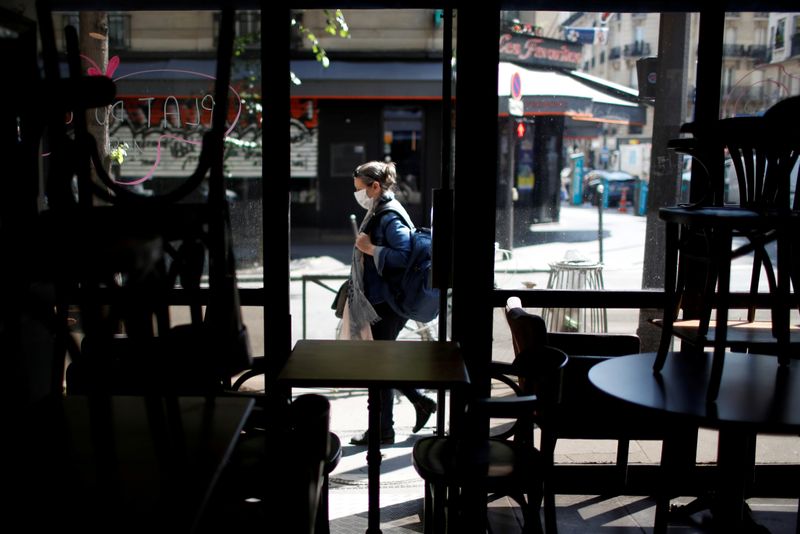By Lucien Libert and Eric Gaillard
PARIS/NICE, France (Reuters) - Serge Coeroli has given the shelves behind the bar of his Paris restaurant a new lick of paint, in anticipation of customers returning now that lockdown rules in France are easing.
But the relief he feels is overshadowed by a nagging uncertainty over whether he can salvage his summer season.
From beach bars along the French Riviera to campsites in the Dordogne, businesses in the battered tourism industry faced a race against time to bring staff out of furlough, reactivate supply chains and secure bookings.
Few were under any illusions the return to business would be straightforward, particularly in Paris where the virus is more prevalent and restrictions more stringent. Restaurants and cafes, for example, will only be able to open outdoor areas.
"It allows us in a way to reopen the kitchen, to get into gear, contact suppliers, and reopen little by little," said Coeroli, whose restaurant Le Zebre has limited 'terrace' space.
"But it's not with three tables outside that we'll make a living, that's for sure."
From June 2, France is reopening its beaches and allowing restaurants, bars and cafes to resume business. It is also ending travel curbs within the country and wants Europe to lift internal border restrictions by mid-June.
In Cannes, host in normal times of one of the world's biggest film festivals, public workers disinfected the beach ahead of the anticipated crowds.
Further east along the Mediterranean coast, in Nice, private beach operator Rene Colomban isn't short of outdoor space for his restaurant tables and sun loungers. But he does lack visibility on when foreign tourists will return.
"We have no idea how this is going to pan out," he said. He will be bringing his 14 permanent employees out of furlough but is keeping another 10 seasonal workers waiting to hear if they have a job this summer.
"I think we will be hiring fewer people this year," he added.
Nearly 90 million foreign tourists visited France in 2018, making it the most visited country in the world. Tourism accounts for about 7% of France’s 2.3 trillion euro ($2.48 trillion) economy.
Ge Kusters, owner of Le Paradis campsite in the Dordorgne, said he anticipated a slow start to June, with most early reservations now cancelled. But July looked promising, he said.
Pool opening times will be staggered and clients given disinfectant wipes to take to the bathroom blocks.

Asked if summer earnings could be saved, he replied: "High season is 70-80% of our revenues. We're pretty confident."